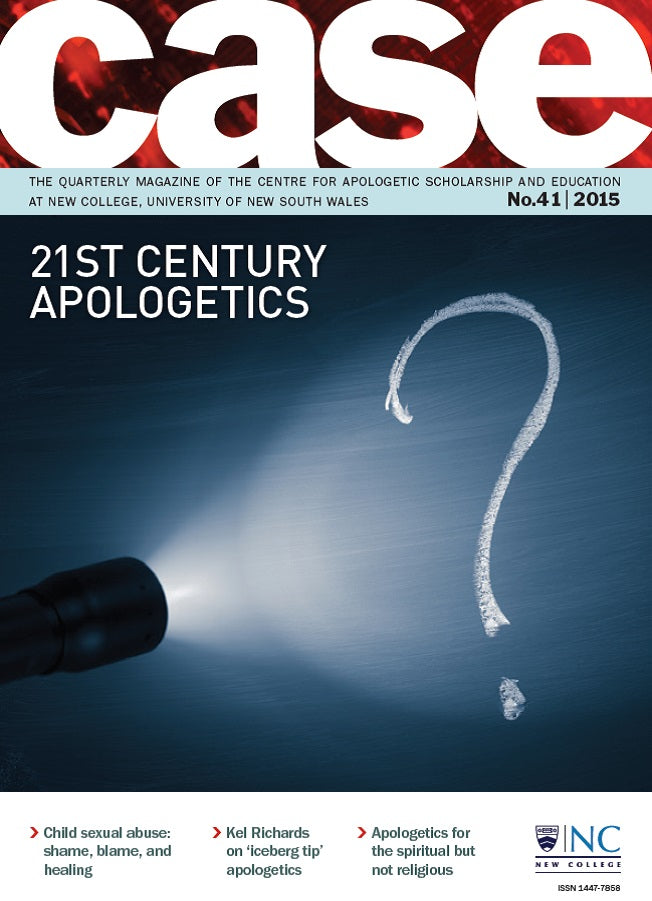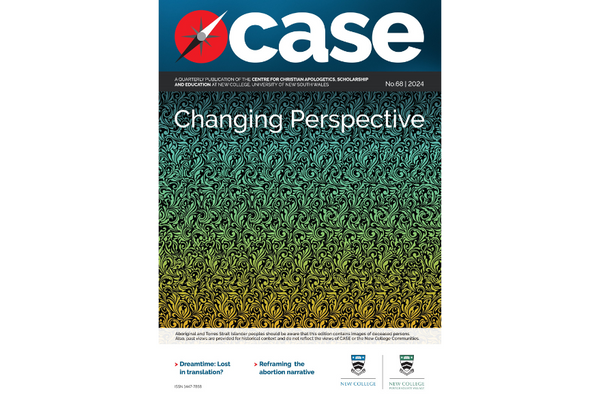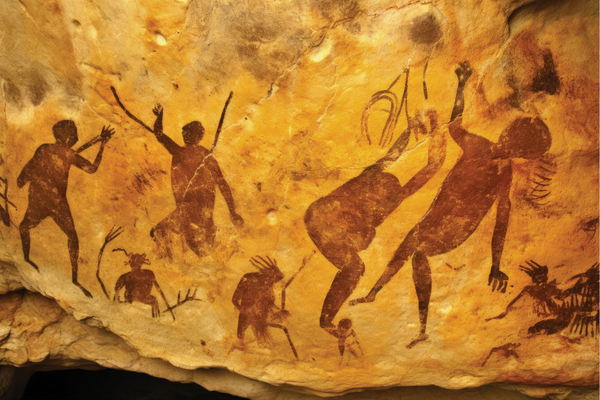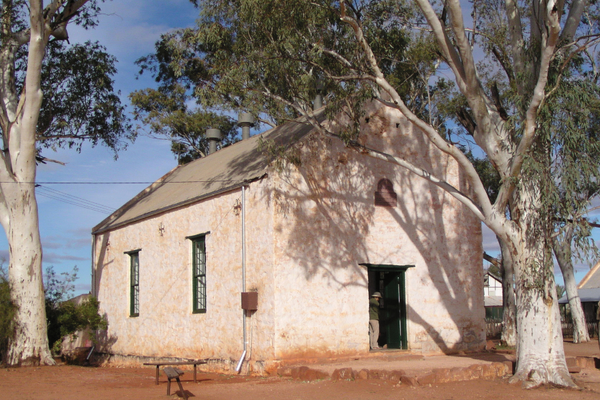21st Century Apologetics: Introduction

Trevor Cairney
Do we need new apologetics for the 21st Century? For many Christians,
apologetics feels like an approach suited to an earlier century, when people in
Western nations had at least some biblical knowledge, and accepted the Bible as a book capable of providing evidence and opening up debate. But we can no longer presume an accepted view of the trustworthiness of the Bible. Today if you begin to ‘give an answer (for the) reason for the hope that you have’ (1 Pet 3:15) by quoting the Bible, it might just lead to the immediate query, ‘but where’s your evidence’? However, the need to give answers is still the same, and so are the deep needs of people. We must provide answers to questions about the Bible and Christianity.
Part of the challenge for Christians is that while some of the questions asked are timeless (e.g. why is there suffering, how can a good God allow such and such?), many questions spring from developments that have occurred since the biblical texts were written. For example, the theory of evolution, the ability to enable conception, medical manipulation of life, or being able to identify deformities within the womb. There is always the potential for new theories, discoveries, or ideologies to conflict with (or appear to conflict with) established Christian understandings of the Bible and theology.
The intellectual context in which Christians strive to stand firm and hold out the word of life is constantly changing. This means that at least some of the stumbling blocks to Christian faith will be different now to those of previous centuries. For example, two significant and relatively recent objections to Christianity are the Bible’s teaching on women and homosexuality.
Neither were hotly contested issues once, and there was broader universal
acceptance of the Bible’s teaching on each. It seemed once, that broader
culture and Christianity aligned on these issues. But today, as people cry ‘but I
don’t care what the Bible says’, it has become imperative for Christians to be
able to give an answer for their countercultural stances that are contested.
Another critical front for Christian apologetics is how we respond to the
shameful failures of the church as well as broader society in relation to child
abuse. The appalling revelation of child abuse within Christian as well as secular
institutions has led some to reject Christianity. Sadly, there is nothing we can do to change what has happened, and it can be hard for Christians to know what to say in the awkward space between shame and defence. Helen Miller offers her insights in this edition as a member of the Anglican Working Group appointed to respond to the Royal Commission into Institutional Responses to Child Sexual Abuse.
A further challenge in the increasingly diverse cultural landscape of our cities is the ‘marketplace’ of ideas and religions that offer answers of one kind or another. Recent social research shows an increase in people referring to themselves as ‘spiritual but not religious’. The challenge here is not lack of evidence, but openness to multiple forms of spirituality and concomitant rejection of Christianity’s claims to uniqueness. Ross Clifford and Philip Johnson have explored different approaches to connecting with these seekers after spirituality, and share these with us here.
Unlike these developments, the perception that science conflicts with
Christianity is not new, and excellent Christian scientists have been showing
why this perception is unjustified for as long as the accusations have been
made. However the voices of those who seek to use ‘science’ to undermine the
credibility of Christianity are growing louder not quieter. Chris Mulherin argues for the urgent need to continue to provide answers in this area.
There is also a need to reconsider how we do apologetics. Chris Swann deals with suspicions about an ‘apologia’ that drifts away from biblical defence. His
argument is that the Bible should shape our apologetics and centre them on
Christ in content, manner and method.
Andrew Laird and Kel Richards also offer excellent pieces that show that all can do apologetics. Kel Richards commends us to be good listeners and formulate ‘iceberg tips’ that can lead to deeper conversations, prayer and changed lives. Andrew Laird reminds us of the need for relationships of love with our friends and contacts, and the way that a simple meal and hospitality can allow relationships to grow and the gospel to be shared.
Our issue is rounded out with two interesting reviews. Tess Holgate provides an insightful review of Annabel Crabb’s The Wife Drought, which offers a different angle on gender stereotypes. Finally, Dani Scarratt reviews John Dickson’s new book A Doubter’s Guide to the Bible, which will end up on many people’s pile of ‘must read’ books.
I hope you enjoy this issue. ©
Leave a comment
Comments will be approved before showing up.



